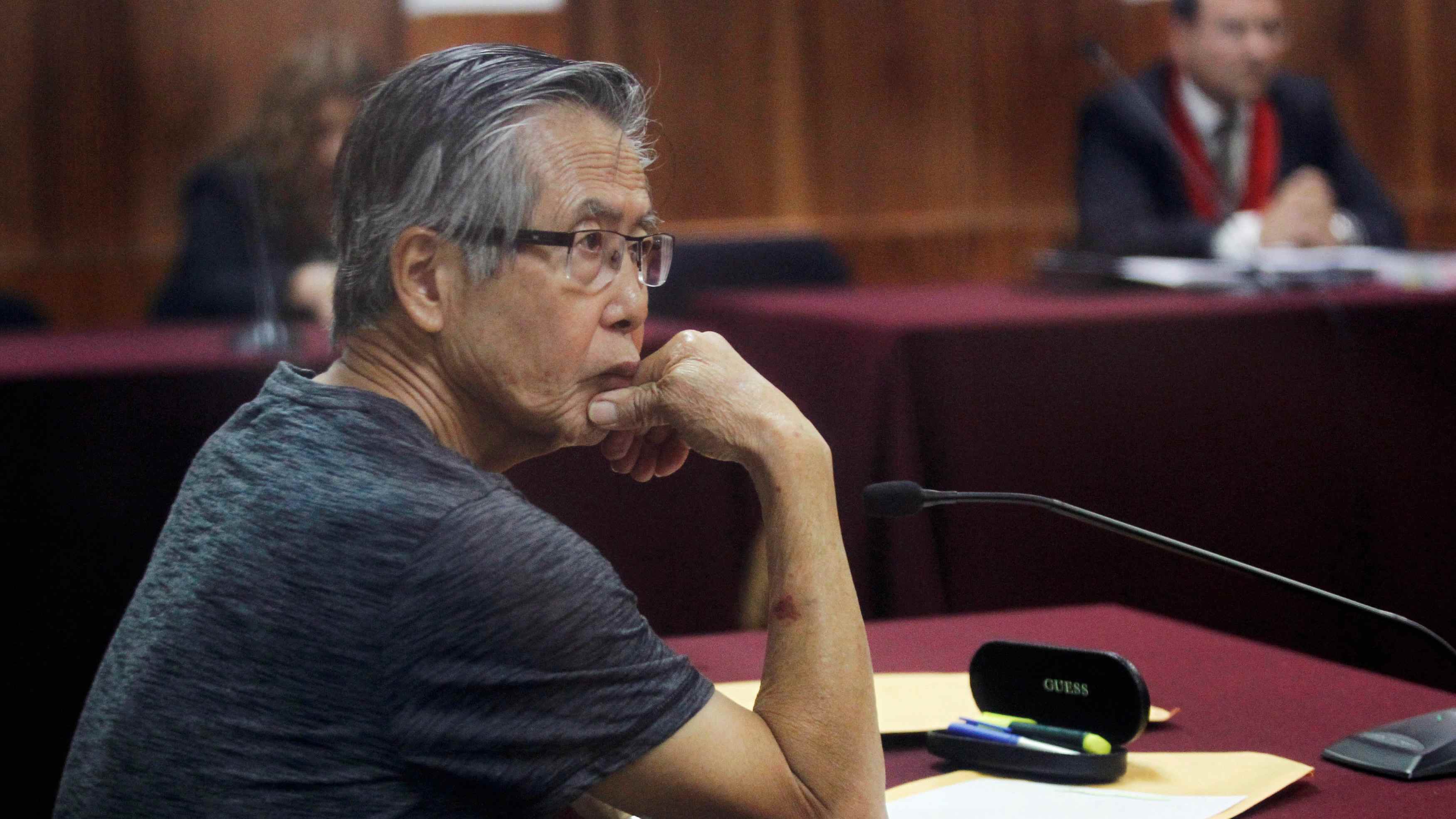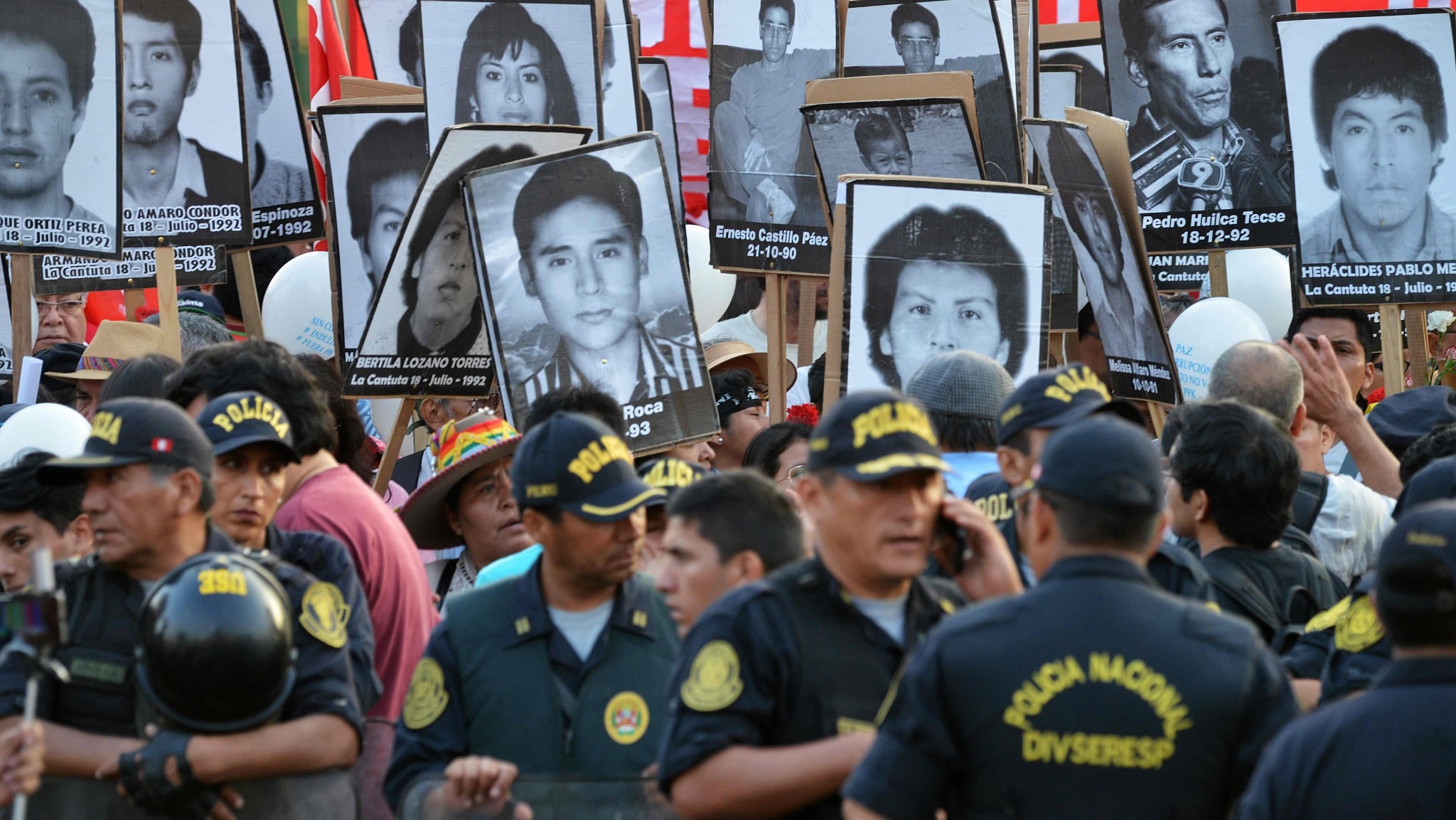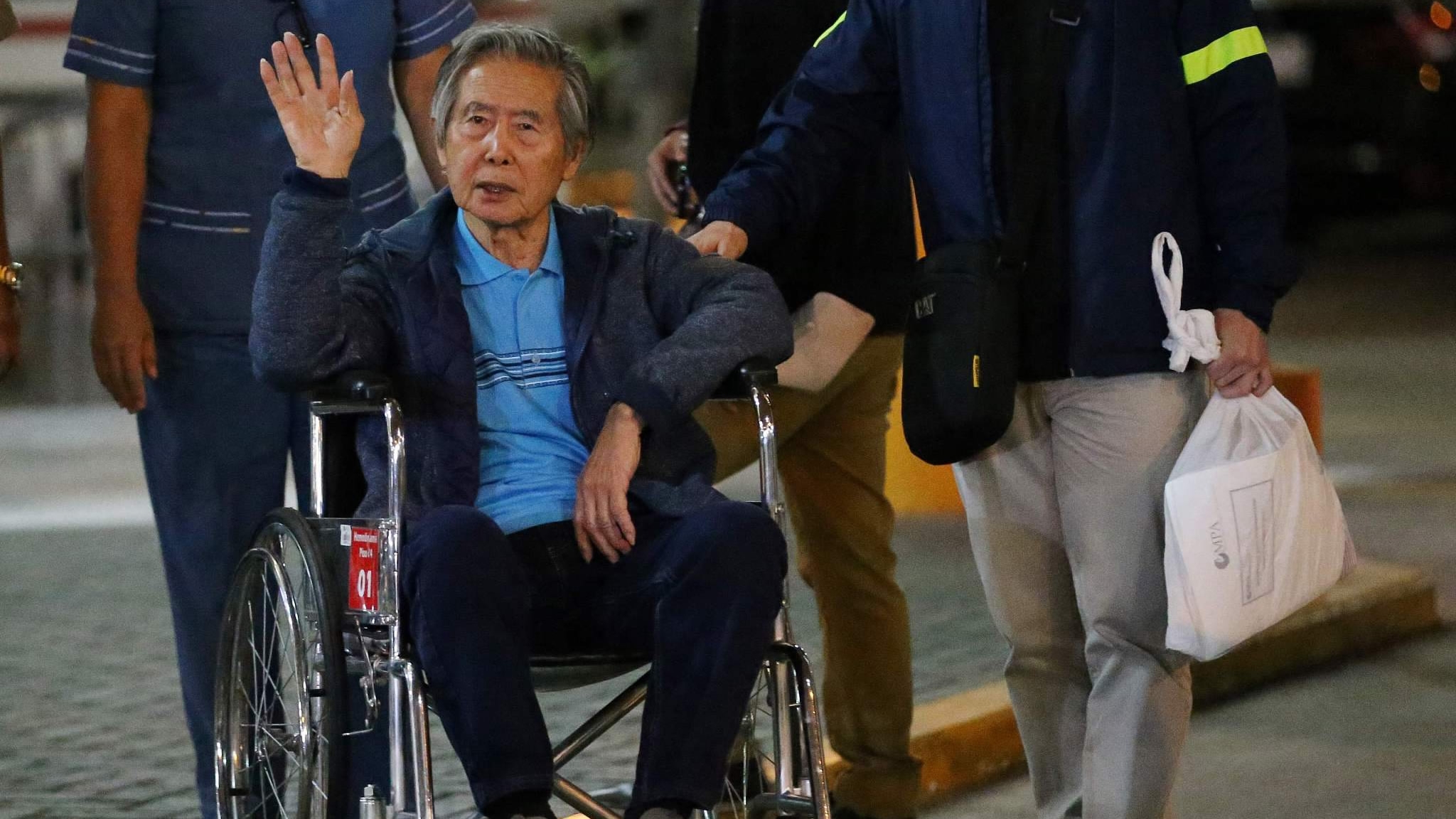
Politics
08:46, 20-Feb-2018
Former Peru leader Fujimori faces trial over 1992 killings
CGTN

Former Peruvian president Alberto Fujimori was ordered to stand trial for the 1992 killings of six farmers on Monday – despite a recent presidential pardon for a different crime.
The National Criminal Court ruled that the pardon would not excuse Fujimori from future trials involving the death of six people killed by a paramilitary group in the town of Pativilca in 1992, during his 10-year rule.
Read more: Fujimori clan’s role in Peru’s politics
Prosecutors asked to try the ex-president and 22 others for the death squad killings.
Fujimori, 79, was pardoned by the current Peruvian president, Pedro Pablo Kuczynski, on December 24 on humanitarian grounds because of ill health.
The former leader had been serving a sentence for crimes that included commanding death squads that killed suspected civilian sympathizers of leftwing guerrillas that his regime was fighting.

Peruvian police shadow hundreds of protesters gathered to march in Lima for the fifth time against the presidential pardon granted to former president Alberto Fujimori (1990-2000), January 30, 2018. /VCG Photo
Peruvian police shadow hundreds of protesters gathered to march in Lima for the fifth time against the presidential pardon granted to former president Alberto Fujimori (1990-2000), January 30, 2018. /VCG Photo
The pardon triggered street protests in Peru and was slammed by international rights groups as a blow in the struggle against impunity.
Kuczynski's pardon was seen by many as quid pro quo for help from Fujimori's lawmaker son Kenji days earlier in beating an impeachment vote in Congress over alleged corruption.
Miguel Perez, Fujimori's attorney, said it was not yet clear if the issue of immunity could be addressed again. Perez told local media that he tried to have the ex-president serve as a witness in the new case, but failed. "So in this trial, he simply will be listed as one of the accused," Perez said.
Prosecutors are seeking 25 years in prison for the 79-year-old ex-leader. "Mr Fujimori now has resumed his status as a defendant, and in the case of the pardon there was no sensible justification," human rights lawyer Carlos Rivera said.
Kuczynski had pledged not to pardon Alberto Fujimori, but he did so just days after Kenji Fujimori's vote in his favor, sparking speculation the pardon was a political quid pro quo.

Peru's former president Alberto Fujimori wheels out of the Centenario Clinic in Lima, January 04, 2018. /VCG Photo
Peru's former president Alberto Fujimori wheels out of the Centenario Clinic in Lima, January 04, 2018. /VCG Photo
Rights groups and relatives of victims asked the Inter-American Court of Human Rights earlier this month to rule against a pardon for Fujimori.
Kuczynski, who defeated Keiko Fujimori for the presidency in 2016, said he had pardoned the ex-president for humanitarian reasons.
The pardon has drawn heavy criticism from victims of Fujimori's 1990-2000 rule as well as their relatives and human rights advocates.
Two UN human rights experts also said the pardon was a "slap in the face" to victims of his brutal rule.
Fujimori earned respect from many Peruvians for his ruthless and unflinching campaign to defeat leftist guerrillas during his presidency.
16665km
Source(s): AFP

SITEMAP
Copyright © 2018 CGTN. Beijing ICP prepared NO.16065310-3
Copyright © 2018 CGTN. Beijing ICP prepared NO.16065310-3